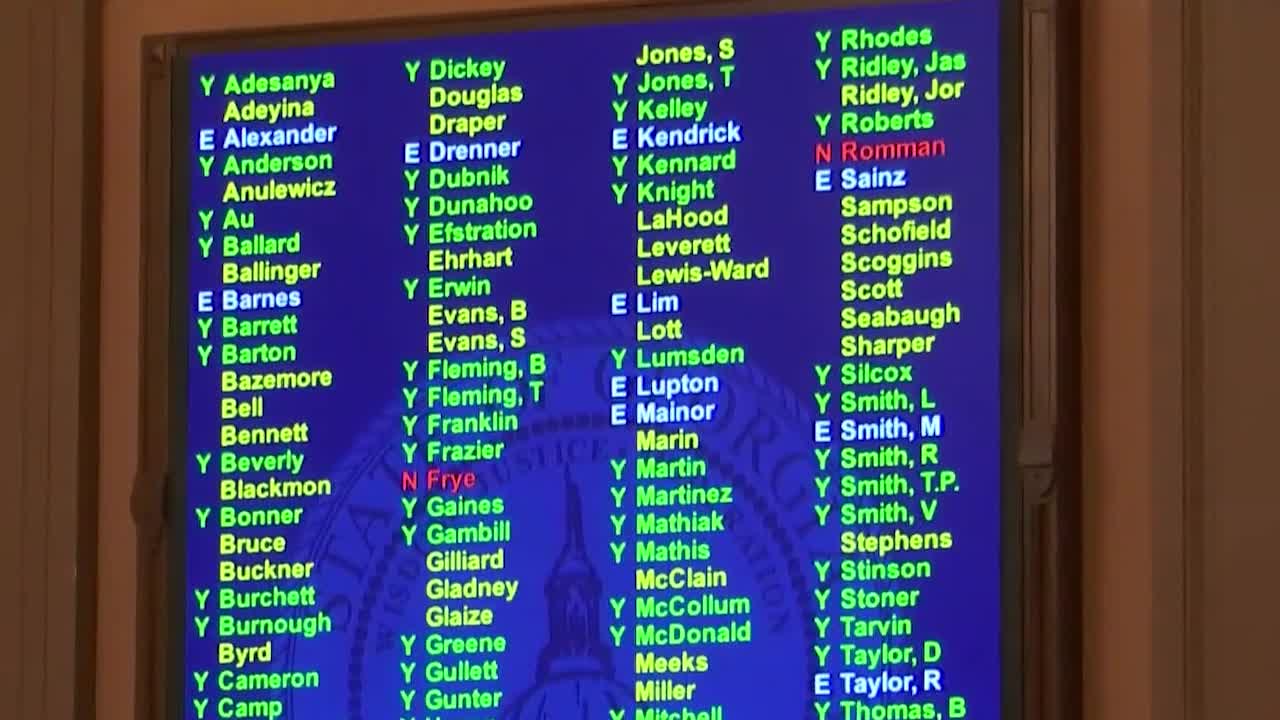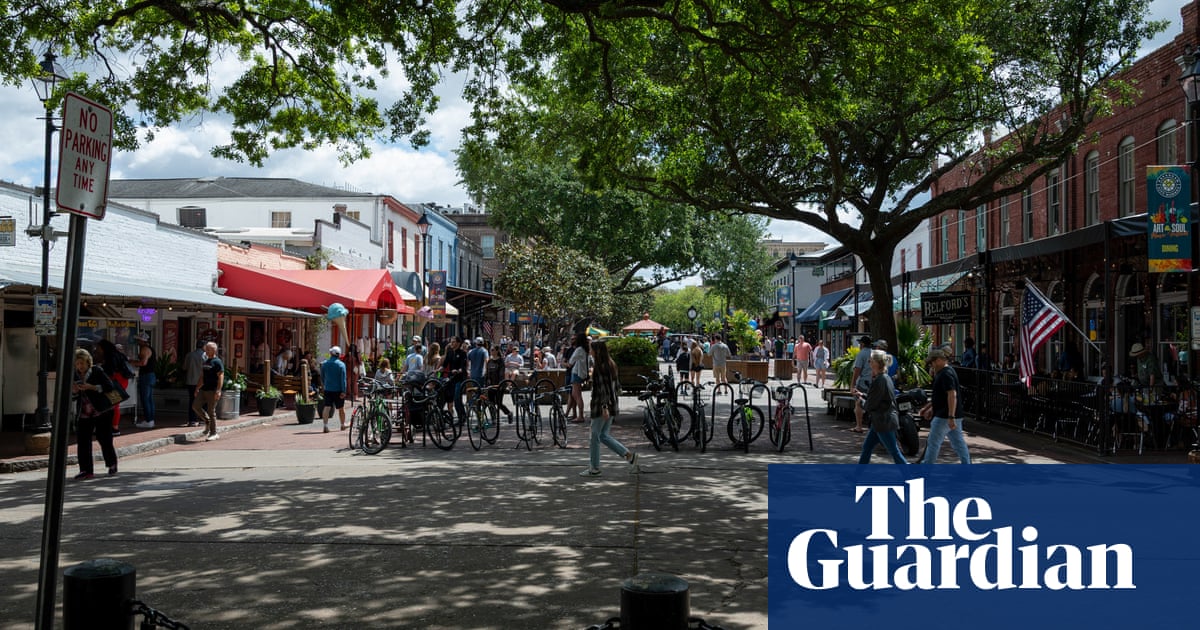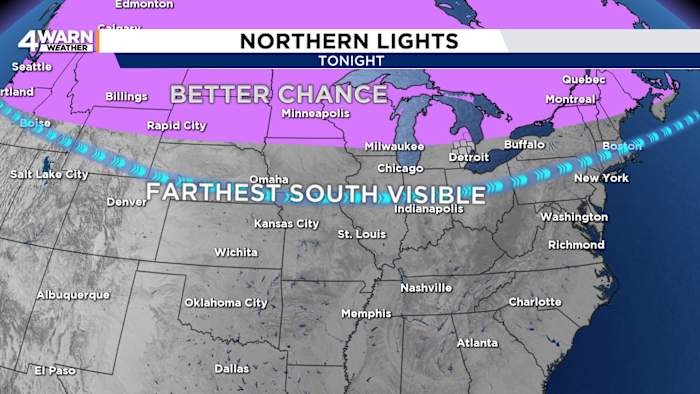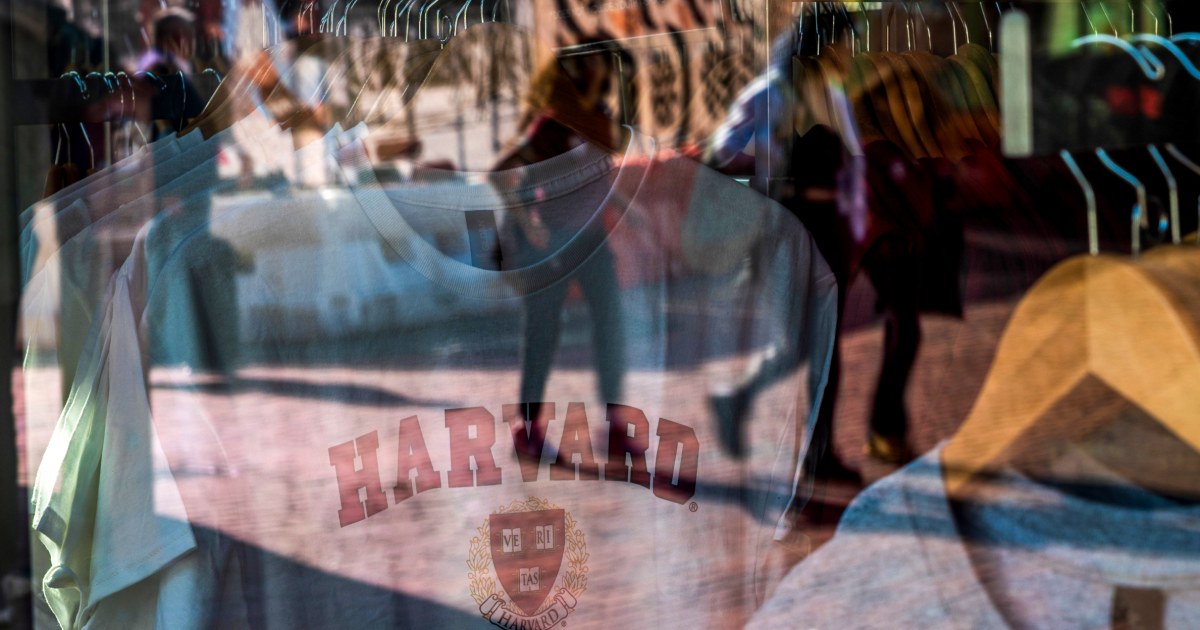Georgia
Georgia legislature endorses controversial police training center known as ‘Cop City’

GA lawmakers vote to support so-call ‘Cop City’
The Georgia House has voted to back the building of the controversial Atlanta police and fire training center opponents have dubbed “cop city.” Critics of that resolution say it’s a local issue, not for the state legislature, and accuse Republicans of trying to further divide Democrats.
ATLANTA – The Georgia House of Representatives overwhelmingly voted to back the building of the controversial Atlanta police and fire training center opponents have dubbed “Cop City.”
The 144-5 vote came during the special session on Wednesday, days after the senate approved the resolution 48-5.
On the floor, one Republican presented it as an ultimatum.
“You either support public safety officers, and law enforcement, and law and order, or you don’t,” said state Rep. Will Wade, R-Dawsonville, “Voting yes says you do, voting nay is you don’t.”
The non-binding resolution also condemned the acts of vandalism and destruction people in the Stop Cop City movement have been accused of.
The Georgia House voted by an overwhelming bipartisan majority to support the Atlanta Public Safety Training Center on Dec. 6, 2023. (FOX 5)
But some of the Democrats who were holdouts argued there were legitimate concerns about the project and the city’s resistance to a petition to put the project on the ballot.
“Do not dismiss those concerns by conflating us with extremist violent protesters,” said state Rep. Saira Draper, D-DeKalb County, who represents the constituents who would have the facility in their backyards.
She accused state Republicans of trying to meddle in local politics to split Democrats.
“This is a thinly veiled attempt to sew division and frame us for something we are not. I will not fall for that,” Draper said. “I will not cede the issue of public safety to the majority party.”

An aerial view of the future Atlanta Public Safety Training Center in DeKalb County. (FOX 5)
State Republicans, including Gov. Brian Kemp, have praised democrats in Atlanta’s city leadership for pushing the project forward despite the far-left opposition. Before Wednesday’s vote, Atlanta’s Mayor Andre Dickens, a Democrat, received rare praise on the house floor from a Republican lawmaker.
“Dickens wants to change some things in Atlanta, and I think he’s doing a great job,” said state Rep. J. Collins, R-Villa Rica. “Getting behind this project is very important.”
The resolution is symbolic and non-binding, meaning it won’t move the needle on the project in either direction from a legal perspective.

Georgia
Georgia Tech Baseball Falls 11-9 To Ole Miss and Is Eliminated From The NCAA Tournament

Two things ended today in Oxford, MS.
Georgia Tech baseball was not able to extend their season in the Oxford regional today and the Rebels took down the Yellow Jackets 11-9 to not only end the season, but the long career of Danny Hall as Georgia Tech’s head coach. For the second straight day, Georgia Tech’s pitching had major issues and their starer was not able to even get through the first inning. While the offense was strong, they were unable to do anything late, managing only one run over the final five innings of the game after scoring eight in the first four.
After dominating in the opening game against Western Kentucky, Georgia Tech’s pitching completely fell apart in the final two games, giving up 24 runs total. The offense was perfectly fine across the last three days, but once again in the postseason, the pitching came undone for the Yellow Jackets.
Here is how the Yellow Jackets lined up today:
1. CF Drew Burress
2.1B Kent Schmidt
3. SS Kyle Lodise
4. 2B Alex Hernandez
5. C Vahn Lackey
6. LF Caleb Daniel
7. 3B Carson Kerce
8. DH Drew Rogers
9. RF Connor Shouse
Jaylen Paden was on the mound today for Georgia Tech.
Just like yesterday’s game vs Murray State, Georgia Tech got off to a quick start in the 1st inning.
Burress walked to start the game and then Schmidt blasted a two-run home run to give GT an early 2-0 lead over the Rebels. Lodise then came to the plate and hit Georgia Tech’s second home run of the inning to make it 3-0. Lackey got a one-out double and got to third after a flyout from Daniel, but Kerce struck out to end the inning. Yellow Jackets led 3-0 heading to the bottom of the 1st.
Just like yesterday though, the lead was gone by the end of the first inning.
The Rebels got a leadoff double and then an RBI single made it 3-1 with no outs. A walk from Paden put two runners on with no outs. After getting a lineout, Ole Miss got a one-out, three-run home run to give them the lead 4-3. Another single and then a double put runners on second and third with one out and then an RBI single made it 5-3. Paden was pulled in the first inning in favor of Carson Ballard. He got the final out, but GT now trailed.
After Georgia Tech left the bases loaded in the 2nd, Ole Miss added another run. They got a leadoff double and then a single to put runners on the corners with no outs. After striking out a batter, a sac fly extended the lead to 6-3. It was the only run of the inning, but GT now trailed by three.
They slowly got back into the game though.
Lackey reached on an error to start the 3rd and advanced to second to put him in scoring position. After Daniel struck out, Kerce hit an RBI double to cut the lead to 6-4. Rogers struck out and Shouse lined out to end the inning and the Rebels led by two going to the bottom of the 3rd
After a 1-2-3 scorless inning from Ballard, Georgia Tech got the lead back.
Back-to-back home runs from Burress and Schmidt tied the game up at 6-6 and there were still no outs for GT. Lodise walked and Hernandez singled to put two runners on and after Lackey lined out, Daniel came through with a 2-RBI double that gave the Yellow Jackets the lead back 8-6. Kerce and Rogers could not capitalize, but Georgia Tech now led heading to the bottom of the 4th.
After another scorless inning from Ballard in the 4th, he ran into trouble in the bottom of the 5th.
A leadoff home run cut the lead to 8-7. After striking out the next batter, Ballard walked one and hit another, putting two runners on with one out. He was then replaced by Riley Stanford. Stanford walked the first batter to load the bases and after getting the second out, issued a bases-loaded walk that tied the game 8-8. He got the final out, but the lead was lost.
The two teams proceeded to go back and forth, with Georgia Tech getting the lead back, but then not being able to hold it in the 6th.
Lackey recorded a two-out single and got to second on a wild pitch. Daniel hit an RBI single to put the Yellow Jackets back on top 9-8. Kerce struck out to end the inning, but Georgia Tech was in front once again. A two-out RBI single tied the game 9-9 and that was the score heading into the 7th
After a scoreless inning from the Yellow Jackets offense, Ole Miss took the lead for good in the bottom of the 7th. Mason Patel came in to replace Stanford on the mound and Ole Miss got a one out single and then a steal to put a runner in scoring position. After striking out the next batter, Patel gave up a two out, RBI single that gave the Rebels the lead 10-9. He got the last out, but Ole Miss took the lead back.
After another scoreless inning from Tech’s offense, Ole Miss added an insurance run in the 8th. Patel gave up a one-out solo home run to extend the lead for Ole Miss to 11-9 and then a double ended his day and Connor Chicoli came in to pitch for the Yellow Jackets. He struck out the final two batters to end the inning, but GT trailed 11-9 going to the 9th.
It looked like Georgia Tech had them right where they wanted them in the top of the 9th. After Kerce grounded out, Rogers reached on an error and Shouse laid down a bunt single to put two runners on with one out and the top of the lineup coming to the plate. Burreess flew out and then Schmidt was intentionally walked, which loaded the bases with two outs and Lodise coming up to the plate. With a chance to tie or take the lead, Lodise swung out and the season was over for Georgia Tech.
Georgia
Former Georgia star Jarvis Jones named head coach at Carver-Columbus — Georgia High School Football Daily

Former Georgia football star Jarvis Jones was announced last week as head football coach at defending Class 2A champion Carver of Columbus, his alma mater.
Jones played on Carver’s 2007 Class 3A championship team and became an All-American linebacker at Georgia and a first-round NFL draft pick who played four NFL seasons, mostly with the Steelers.
After leaving the NFL, Jones returned to Georgia to get a degree and has worked with the football program since, most recently as player connection coordinator.
Jones was the AJC’s Class 3A defensive player of the year in 2007, when Carver won its first state title under Dell McGee, who is now Georgia State’s head coach.
Jones played one season at Southern Cal before transferring to Georgia.
After sitting out a year, he became a two-time first-team All-SEC selection. In 2012, Jones was the SEC defensive player of the year and a consensus first-team All-American for a 12-2 team that finished ranked No. 4 in the final coaches poll.
Jones will replace Pierre Coffey, who recently resigned to become the principal at Stewart County High.
The 2024 state title was Carver’s second. Carver finished 14-1 and outscored its five playoff opponents by an average score of 47-10.
Georgia
Want to see where Trump’s tariffs are leading US business? Look at Georgia

If you want a bellwether to measure the broad impact of Donald Trump’s tariffs on the economy, look south, to Georgia. The political swing state has a $900bn economy – somewhere between the GDPs of Taiwan and Switzerland.
The hospitality industry is facing an existential crisis. Wine merchants wonder aloud if they will survive the year. But others, like those in industrial manufacturing, will carefully argue that well-positioned businesses will profit. Some say they’re insulated from international competition by the nature of their industry. Others, like the movie industry, are simply confused by the proposals that have been raised, and are looking for entirely different answers. So far, it’s a mixed bag.
In a state Donald Trump won by two points and with yet another pivotal US Senate race in a year, Republican margins are thinner than those of the retailers with their business on the line here.
Carson Demmond, a wine distributor in Georgia, finds herself looking at seaborne cargo notices for her wine shipments from France with the nervousness of a sports gambler watching football games. She’s betting on her orders of French champagne and bordeaux getting to a port in Savannah before tariffs restart.
It’s a risk. Demmond put a hold on orders after Donald Trump enacted sky-high tariffs on European goods last month. When he paused the tariffs days later, Demmond began to assess what she might chance on restarting some purchases.
But her wine isn’t showing up on a ship in France yet, she said.
“I don’t see them booked on ships yet, and normally they would already be booked, and I would already have sail dates,” she said. “I see a lot of my orders now collecting in consolidation warehouses in Europe, which says to me that there’s something wrong.”
Demmond suspects that shipping is suffering from a bullwhip-like effect from uncertainty around tariffs and the economy: so many buyers are trying to get ahead of tariffs that there aren’t enough shipping containers to go around to meet the short-term demand.
“It means that as strategic as I’m trying to be with regards to timing my orders so I don’t get hit with lots of tariff bills at the same time, I feel like now all of that is out of my control,” Demmond said. “I never want to face a situation where I have too many orders that all sail and land at the same time, and then getting hit with really large tariff bills in one fell swoop.”
US courts, meanwhile, are vacillating on the legality of Trump’s tariffs. The stock market rallied this week after the US court of international trade (CIT) ruled that Trump’s use of extraordinary powers under the International Emergency Economic Powers Act (IEEPA) exceeded his authority. Less than a day later, an appellate court lifted the lower court’s block on the tariffs while the case plays out.
Unpredictability is driving volatility, and volatility is poisonous to businesses built for stable markets and stable prices.
Georgia’s ports have not yet witnessed the massive slowdown occurring on the west coast. Shipping at the port of Los Angeles is down by a third as buyers cancel orders from China. But Savannah – the third-busiest port in the United States behind the Los Angeles area and New York/New Jersey ports – just came off its busiest month.
“We’re still watching how this goes,” said Tom Boyd, chief communications officer for Georgia’s ports authority. “We still are having 30 to 32 vessels a week. Most everybody has been front loading to avoid any supply chain disruptions. Volumes are strong, but we expect volumes to decrease.”
Savannah’s port sees more ships from the Indian subcontinent, Vietnam and Europe than from China, because it’s a few days shorter from India through the Suez Canal than across the Pacific, he said.
Demmond, who runs the wine distributor Rive Gauche, watches the reports up and down the eastern seaboard carefully because many of the ships from Europe dock in New Jersey before coming south, she said. About 60% of her business is in French wine. Shipping volumes are making logistical planning difficult, she said. Amazon has hired away warehouse workers, which slows down unloading and can leave her wine on a ship for longer periods.
She likened the logistical disruption today to the effects of Covid-19 shutdowns.
“There’s going to be a crazy ripple effect through multiple industries,” Demmond said. “In normal times, I could count on approximately eight weeks from the time I send my purchase order to the winery for them to prepare it, to the time that it arrives at port. Now, you know, I have no idea, because everything is different and unpredictable. I have a hard time quoting arrival times to people.”
Demmond is a wine merchant, not a political economist. Predicting the course of trade negotiations has become a business hazard. She and other Georgia wine distributors met with the representative Hank Johnson last month to describe the effect of a 200% tariff on European wine imports on their business.
Many restaurants derive half of their revenue or more from alcohol sales. If the cost of spirits triples, many people will change their dining habits. Domestic supply can’t make up the difference, she said. A decision to expand a domestic winery made today wouldn’t produce a bottle of wine for three to five years. By then, Congress or a new president may have rescinded the tariffs, blowing up the investment.
If it were just European liquor, a conservative might dismiss the disruption as something affecting well-heeled wine snobs. But the problem has wide applicability, Demmond said.
“There are no American coffee growers. There are no coffee farms here,” she said. “That’s an impossibility. All you’re doing is increasing prices. You’re not helping create jobs by taxing that stuff. Some of it is impossible to re-shore.”
Georgia calls itself the Peach state, but California has long eclipsed Georgia’s peach production. Instead, the most widely exported Georgia peach has been the one moviegoers see at the end of the credits: Georgia had $2.6bn in film and television production in 2023.
Georgia’s tax incentive program is among the most aggressive in the US and the reason Georgia has become a rival to Hollywood. It’s an economic development strategy that has unusually bipartisan support in a state famously split down the middle politically. Studios have invested billions in Georgia over the last 10 years.
Between Disney’s Marvel movies like The Avengers, Tyler Perry’s studios in Atlanta and Netflix productions like Stranger Things, Georgia has overtaken Hollywood as a center for cinematic production. In any given year, studios spend $2-$4bn making movies in Georgia, according to figures from the Georgia Film Office.
But the tax-incentive-chasing film industry is fickle. Acres of shiny new studio space springing up across the state have not prevented the movie business from slowing down a bit over the last couple of years. With the release of Thunderbolts*, for the first time in more than a decade no Marvel movies are slated for production in Georgia. Disney has shifted to studios in England and Australia.
So when Donald Trump said he wanted a 100% tariff on foreign-produced films, Georgia Entertainment CEO Randy Davidson did a double take.
“It kind of took people by surprise,” Davidson said. “You know, on the one hand, you have people that have been struggling with their jobs here already, thinking initially that was going to be like a quick-fix answer to get production back here. … And then there was the other side: how is politicizing movies into the tariff discussion beneficial? Because it doesn’t make sense.”
Trump’s tariff talk emerged after a meeting at the White House with actor Jon Voight and independent film producer Steven Paul. Voight proposed to support the domestic film industry with federal tax credits and international cooperative production agreements, not with a tariff, said Duncan Crabtree-Ireland, Sag-Aftra’s chief negotiator and national executive director.
“You know, we haven’t had a federal tax incentive in the United States,” Crabtree-Ireland said. “It’s quite common in a lot of major production centers around the world now, and I think it’s definitely time for us to have that conversation.”
Films are largely a digital service today. Setting aside the logistical difficulty of assessing a tariff on intellectual property, doing so would violate American law.
Crabtree-Ireland suggested that Trump’s rhetoric might be an aggressive negotiating ploy, starting out with an extreme stand that moves a compromise point to a more favorable position. But a workable plan would have more nuance, Crabtree-Ireland said: “Which is what I think ultimately would be under consideration.”
Crabtree-Ireland said he wouldn’t expect a federal tax incentive to supplant state tax credits. But any international agreement to level the incentive playing field would have to address it.
“What Georgia can hope for is that this topic does not get entangled in a charged-up political atmosphere where it will have a shot to be an actual bipartisan effort and initiative that would actually be good for the country,” Davidson said.
As Georgia companies try to manage inventory before a tariff deadline, warehouse space is only one issue. Capital is another.
“Most companies can’t afford to get two years’ worth of inventory to manage their business while we figure out what’s going to happen, right? So, they’re going to buy a little time, but not a lot,” said Carl Campbell, an executive director for business recruitment at the Dalton chamber of commerce.
Not that there’s a warehouse to be rented in Dalton right now. The north Georgia mill town of about 34,000 in far-right representative Marjorie Taylor Greene’s district is a longstanding center of the carpet-and-flooring industry in the US. But it has had competition for warehouse and industrial space in recent years from solar panel manufacturers, spurred by state tax incentives, the Infrastructure Investment and Jobs Act and federal incentives for the semiconductor industry.
“Everything’s full, you know.” Campbell said. “We’ve got companies that are going to grow manufacturing capacity. They’re currently deciding where to do it, and so the tariffs may swing it to the US. Sometimes that’s swinging that our way. Sometimes it’s making that decision happen sooner rather than later, and sometimes it makes it not happen at all.”
Campbell notes that both Democrats and Republicans can lay claim to Dalton’s industrial successes. Qcells, a solar panel manufacturer owned by the Korean conglomerate Hanwha, is an example, he said.
“When Trump was in office the first time, he implemented tariffs on goods from China,” Campbell said. “They suddenly got very, very serious about doing panel production and assembly in the US. And they had to do that quickly and as fast as possible.” The same tariff regime began imposing costs on imported flooring from Asia, which boosted Dalton’s flooring manufacturers.
Three years later, the Inflation Reduction Act – enacted under Joe Biden – added incentives for clean energy manufacturing, and Georgia’s two Democratic senators, Jon Ossoff and Raphael Warnock, worked to make sure some of the benefit landed in Georgia. About $23bn has been invested in clean energy production in the state since the act passed. Qcells used those incentives to expand in 2023, and employs more than 2,000 people today.
“Tariffs are sometimes a tale of winners and losers. And so, yeah, we won a little bit on that,” Campbell said. “And of course, some of our companies got hurt, and they lost a little bit on that.”
The problem, again, is uncertainty, he said.
“It can create an opportunity for folks like me and companies like ours, yeah, but it can also crush business plans – if you’re reliant on foreign goods and suddenly you just took a 25% hit on your cost. It’s made some people sit on their hands and not move forward on some efforts that we were thinking would happen soon. It’s made some other folks, you know, escalate plans and have to do them faster.”
-

 World1 week ago
World1 week agoNeo-Nazi cult leader extradited to US for plot to kill Jewish children
-

 Movie Reviews1 week ago
Movie Reviews1 week agoMovie review: 'Dogma' re-release highlights thoughtful script – UPI.com
-

 Technology1 week ago
Technology1 week agoDiscord might use AI to help you catch up on conversations
-

 Business1 week ago
Business1 week agoPlastic Spoons, Umbrellas, Violins: A Guide to What Americans Buy From China
-

 World1 week ago
World1 week agoCade Cunningham Gains $45 Million From All-NBA Honors
-

 Movie Reviews6 days ago
Movie Reviews6 days agoMOVIE REVIEW – Mission: Impossible 8 has Tom Cruise facing his final reckoning
-

 Politics1 week ago
Politics1 week agoDefense secretary announces pay raises for Army paratroopers: 'We have you and your families in mind'
-

 Education1 week ago
Education1 week agoVideo: Judge Blocks Trump Move to Ban Foreign Students at Harvard




















